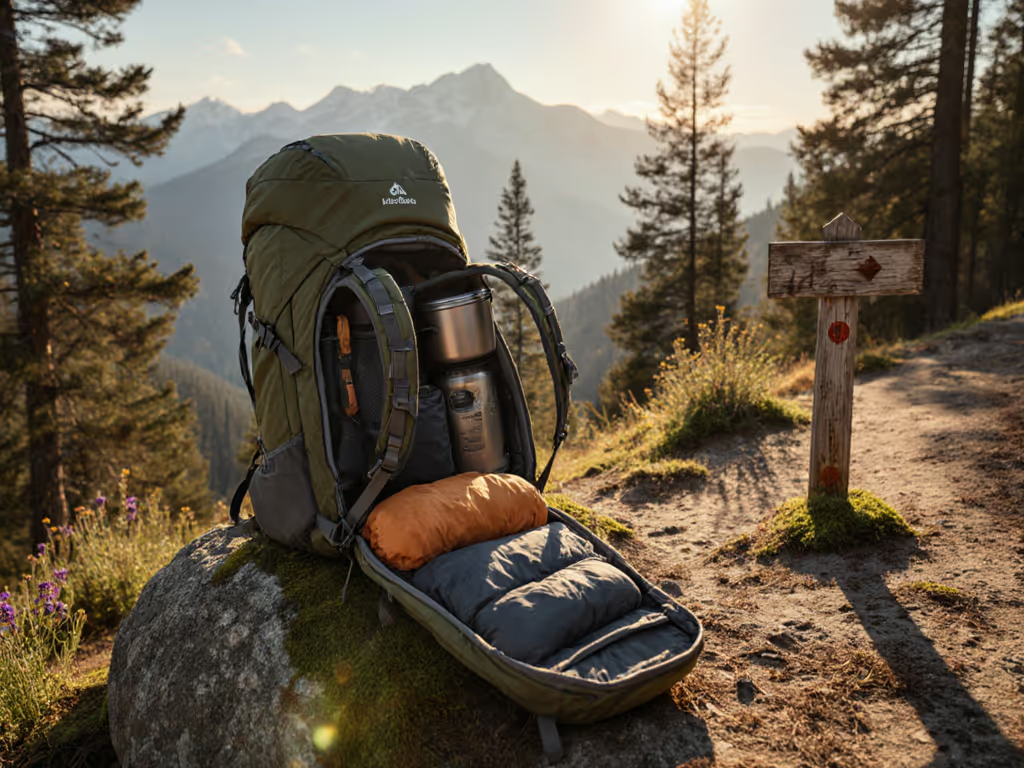
Top Value Hiking Backpacks Under $150
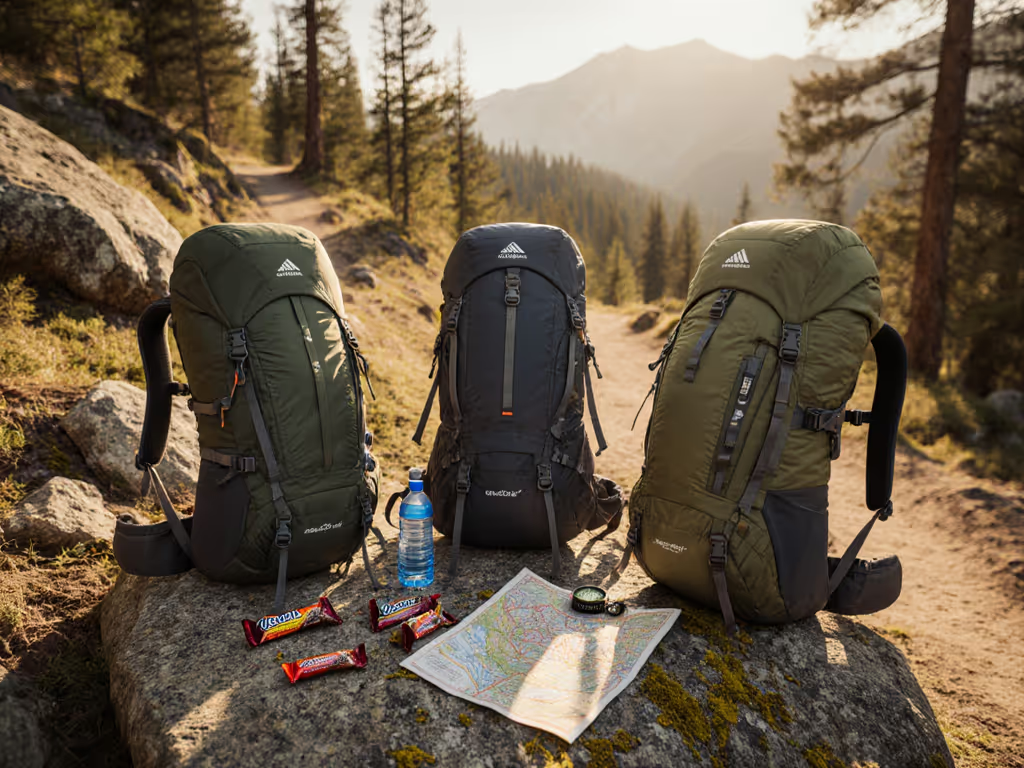
When you're searching for the best backpack for hiking camping, it shouldn't feel like decoding alien technology. And a cheap hiking pack? That phrase shouldn't make you flinch. As someone who's seen dozens of first-timers untangle shoulder straps with panic in their eyes, I know what matters: Start with comfort; confidence makes the miles easier. Today we're cutting through the jargon to find truly affordable packs that understand your body (not just the trail). Because your hiking time is precious, and the right pack shouldn't cost a fortune or your joy.
Why "Cheap" Doesn't Have to Mean "Compromise"
Let's address the elephant in the trailhead: many beginners assume budget packs mean shoulder pain, sagging hip belts, or zippers that quit after three hikes. I've been there, watching a nervous hiker apologize for being slow until we rebalanced their water and snugged the hip belt. Ten minutes later, they were laughing about woodpeckers. That moment taught me: comfort first transforms everything. The packs below prove you can get smart design, body-inclusive sizing, and real-world durability without breaking the bank. No fear-based messaging here, just plain truths for your next adventure.
Your Fit Checklist Before Buying
Before we dive into picks, let's tackle the biggest pain point: inconsistent sizing. Many beginners don't realize torso length (not height) determines proper fit. Here's how to measure yourself:
- Grab a soft tape measure (or string + ruler)
- Find your C7 vertebra (that bump at your neck base when you tilt forward)
- Measure down to the top of your hip bones (where your pants sit)
- Compare to pack specs (ignore "S/M/L" labels; focus on actual torso range (e.g., 16-18"))
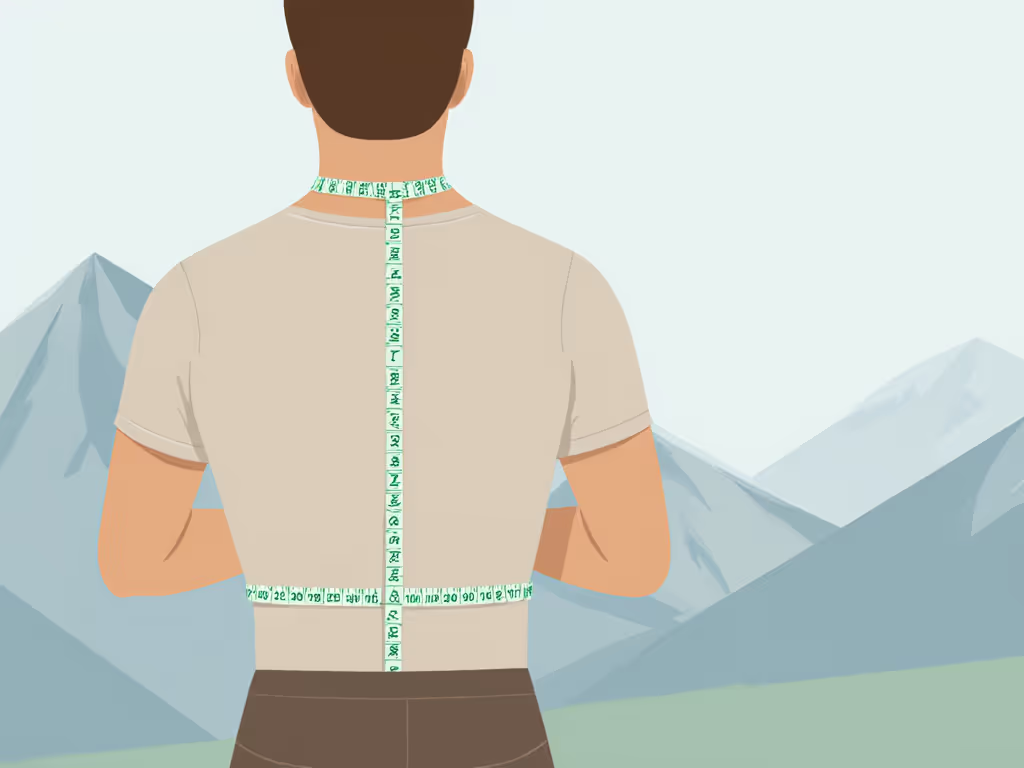
Pro tip: If store staff measure from shoulder to hip, walk away. That's not your torso length.
This small step prevents 80% of "my pack hurts" complaints. Now, let's explore packs that honor your body geometry (and your budget).
1. FENGDONG 40L Waterproof Lightweight Daypack ($30.99) - Best Day Hike Starter
Ideal for: New hikers, urban trail explorers, or weekend warriors needing a simple, no-fuss daypack. (Perfect for loads under 15 lbs, think water, snacks, rain jacket, and a camera.)
If you're testing the waters of hiking without a big investment, this pack is your training wheels. Made with water-resistant polyester, it repels light rain (though skip monsoons), and the breathable mesh back panel keeps your shirt drier than cheaper alternatives. At just 1.54 lbs, it won't weigh you down, and the 40L capacity fits everything for a 4-6 hour hike.
Why it shines for beginners:
- Zero-strain hip belt: A simple, padded waist strap (not a full belt) that actually stays put on petite or straight-waisted bodies
- No-fumble pockets: Two mesh side pockets fit full-size Nalgene bottles (a rarity at this price!), plus a hidden zip pocket for phones/wallets
- Forgiving carry: Shorter torso? No problem. The fixed straps work well for 14-18" torsos without complex adjustments
Real talk: The YKK zippers snag less than expected, but don't overload it past 18 lbs, the frameless design sags. One tester with broad shoulders noted the sternum strap sits low, but adding a DIY clip (like a carabiner) raised it comfortably.
This is the pack I'd hand a hesitant newbie. It's light enough to forget you're wearing it, yet sturdy enough to build confidence.
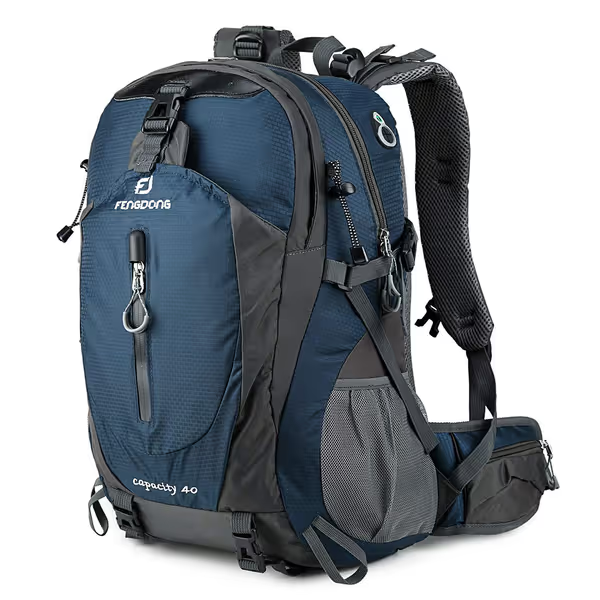
FENGDONG 40L Waterproof Lightweight Outdoor Daypack
2. MOUNTAINTOP 70L Internal Frame Backpack ($92.99) - Best Multi-Day Value
Ideal for: Weekend backpackers, water haulers, or anyone needing serious capacity without serious cost. (Handles 20-30 lbs comfortably, ideal for 2-3 night trips.)
When your daypack outgrows you, this is the upgrade that won't shock your wallet. The 70L volume accommodates water-heavy loads (critical for desert hikes!), and the aluminum alloy internal frame actually transfers weight to your hips (not your shoulders). Unlike flimsy budget packs, it stays stable on scrambles thanks to torso adjusters that fit 16-22" torsos (rare for under $100).
Why it shines for diverse bodies:
- Hip belt that doesn't slip: Padded, curved wings grip straight or curvy hips without digging, key for folks who've quit packs due to "hip belt bruising"
- Water-bottle salvation: Oversized side pockets swallow 1L bottles while wearing a bear canister
- Durability where it counts: Reinforced bar tacking at stress points (shoulder straps, hip belt) prevents seam blowouts
Real talk: The sapphire blue fabric shows dirt fast (go black!), and the rain cover tucks neatly into a bottom pocket, a thoughtful touch for sudden storms. One plus-size tester (5'2", 220 lbs) praised how the load shifted minimally when side-hilling, but noted the sternum strap maxes out at 48". Bring a short strap extender if you're bustier.
This pack bridges the gap between "too basic" and "too pricey." It's what I recommend when someone says, "I'm ready for my first overnight, but scared to spend $300."
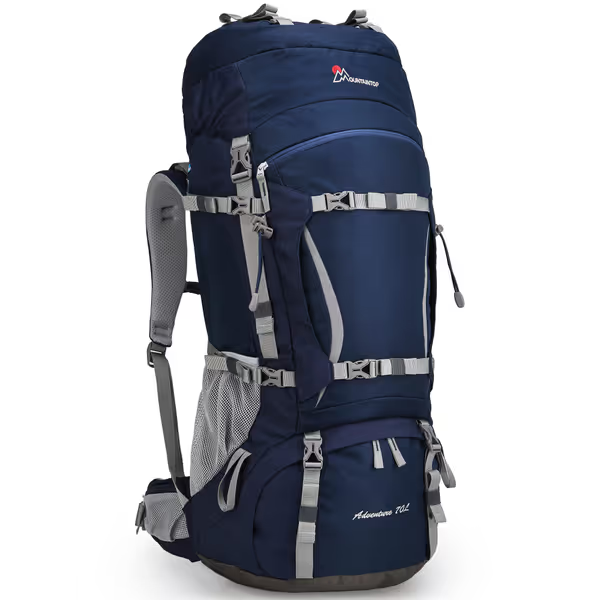
MOUNTAINTOP 70L Internal Frame Backpack
3. Kelty Redwing 50 ($109.95) - Best Upgrade for Long-Term Comfort
Ideal for: Hikers who want one pack for everything, from airport travel to 5-day trips. (Comfortable at 25-35 lbs; ideal for 3-5 night adventures.)
If you're done with "starter" gear but won't touch ultralight fragility, the Redwing 50 is your goldilocks zone. Kelty's FIT-Pro torso system dials in precision sizing (15-20" range), and the AMP-Flow back panel vents heat without sacrificing load stability, a godsend for hot climates or full-chested hikers. The 50L "travel-ready" shape fits airline overhead bins, but the real magic is in the details: wing pockets that hold trekking poles and water bottles, and a U-zipper main compartment you can access like a suitcase.
Why it shines for confidence-building:
- Load-lifter straps that actually work: Angled for short torsos to prevent neck strain
- No "where's my phone?" panic: Dedicated top-lid pocket with key clip + hip belt pockets sized for modern smartphones
- Frame that forgives: Aluminum perimeter frame stays rigid under heavy loads (unlike foam-only budget packs)
Real talk: While REI Co-op hiking packs like the Flash 55 get more buzz, the Redwing's harness system is more adjustable for atypical bodies. One tester with a 14.5" torso (often deemed "too short") used the load-lifters to eliminate shoulder pressure, something rare under $150. It's 3.5 lbs, but that weight buys years of pain-free miles.
Think of this as investing in your future self. When a nervous hiker asks, "Will this still fit me in 5 years?" I point to the Redwing's modular harness. It grows with you.
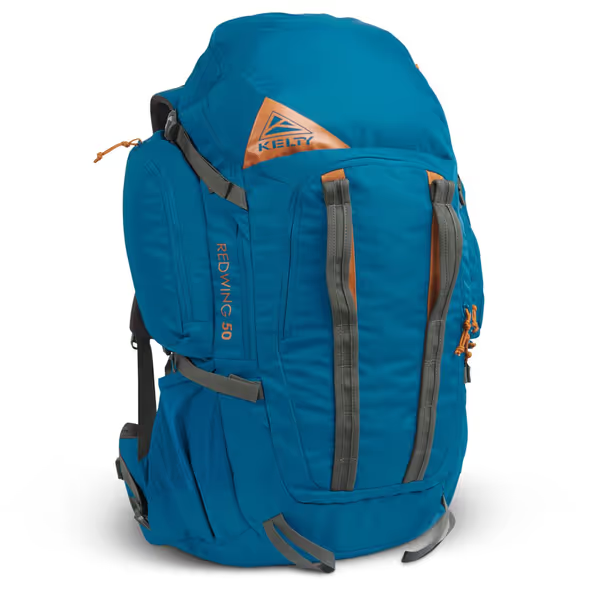
Kelty Redwing 50 Backpack
Making Your Choice: Comfort Over Compromise
Choosing a value hiking pack isn't about finding the cheapest option, it's about honoring your body's needs today while respecting your budget. Remember:
- A pack that fits poorly costs more in lost trail days than a slightly pricier pack that works
- REI Co-op hiking packs (like the Flash 55) offer great options, but often skip critical harness adjustability for diverse bodies
- Hiking backpack ultralight isn't the goal, comfortable is
The FENGDONG, MOUNTAINTOP, and Kelty all prove you don't need to sacrifice your back for savings. They're built for real bodies carrying real loads (not just influencer photo ops).
Your Field Checklist for Success
Before hitting the trail:
- Load it at home: Pack it to your trip weight (add books if needed) and walk stairs for 10 mins
- Check hotspots: Tingling hands? Shift hip belt up. Shoulder bite? Tighten load-lifters
- Test access: Can you grab water without removing the pack? Unzip main compartment mid-hike?
comfort first isn't just a phrase, it's how we keep people on the trail. Your pack should carry for you, not on you.
Take Your Next Step With Confidence
Your perfect pack isn't about brand prestige or ounces saved, it's about showing up for your trail days without dread. Grab one of these value hiking packs, then do this one thing today:
→ Measure your torso right now with a tape measure.
Text a friend to help if needed! Then match that number to the pack's specs (not guesswork). When you know your true size, you'll skip the return fatigue and analysis paralysis. Because every minute spent wrestling gear is a minute stolen from wonder, the bird song, the ridge views, the quiet pride of moving through wild spaces in your own skin.
You've got this. Now go find your trail.
Related Articles

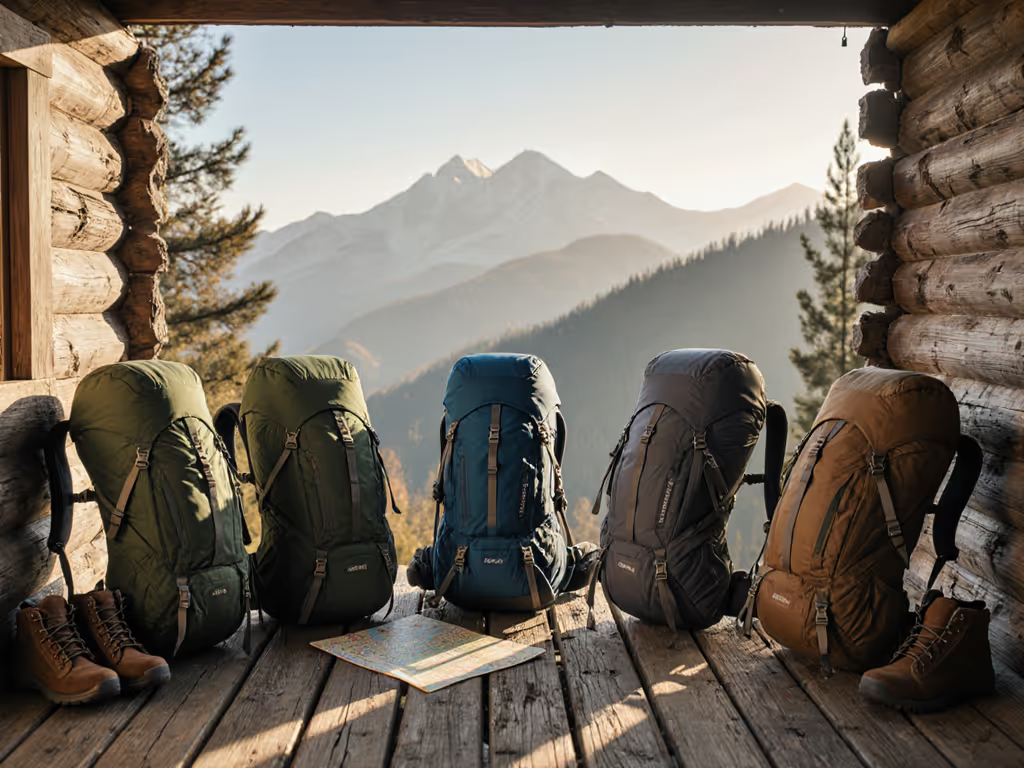
Best Beginner Hiking Backpacks 2025: Top 5 Comfort Picks
Choose a backpack that works with your body, not against it. Learn how to measure for fit, focus on the comfort features that matter, test your setup in motion, and pick from five comfort-first 2025 picks tailored to different needs.
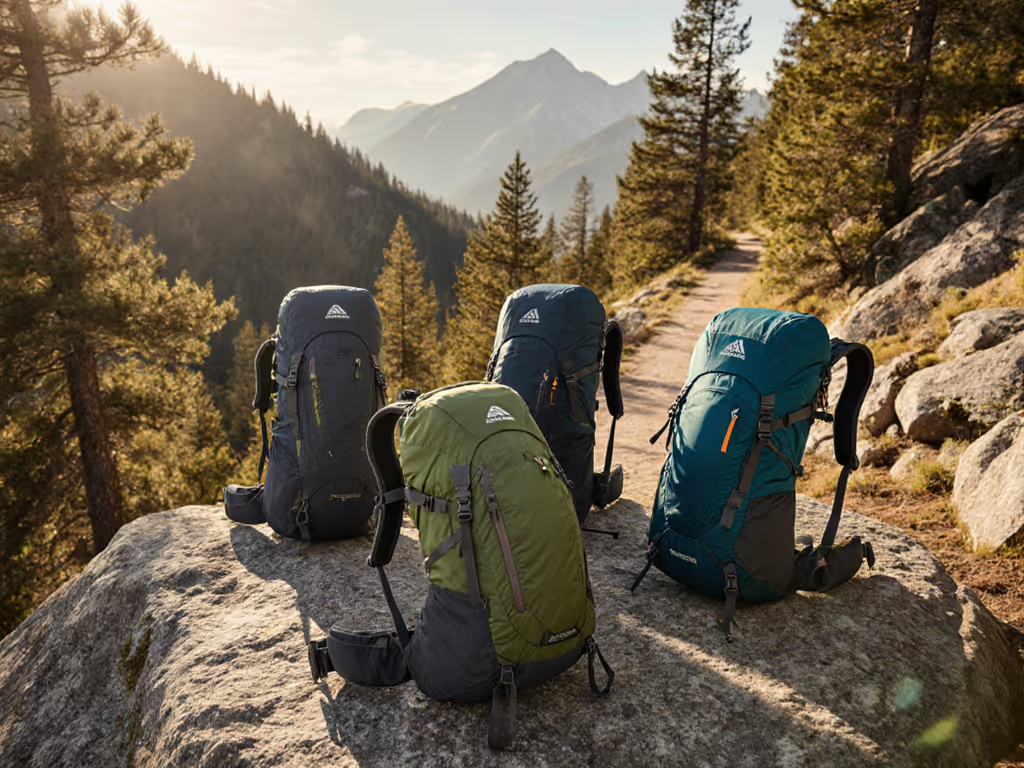
Best Hiking Daypacks: REI's Top 5 Pain-Free Picks
Cut through marketing to choose a daypack that maximizes pain-free miles per dollar, using cost-per-mile math and rankings by load stability, repairability, and resale value. Match real 15–30 lb loads to the right pick with a quick decision guide for comfort across seasons.
